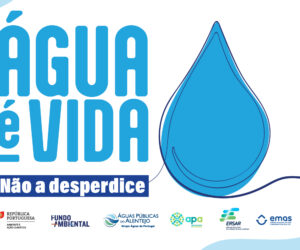 The application of the law on amnesty and pardon of sentences approved within the scope of World Youth Day (WYD) has already led to the release of 408 young people since 01 of September, advanced the Superior Council of the Judiciary (CSM).
The application of the law on amnesty and pardon of sentences approved within the scope of World Youth Day (WYD) has already led to the release of 408 young people since 01 of September, advanced the Superior Council of the Judiciary (CSM).
In information sent to Lusa, the CSM clarified that the region where the highest number of releases was recorded was Lisbon (65), followed by Porto (64), Lisbon West (35), Azores (32), Aveiro (29), Braga and Leiria (23), Lighthouse (21) and Santarém (20) as the districts with the most people freed.
They also registered 16 releases in the district of Lisbon North, 13 Setubal, 11 in Coimbra, 10 in Madeira and Porto Este, 9 in Viseu, 7 Guarda, 6 Vila Real, 4 in Viana do Castelo and Portalegre, and 3 Evora and Beja.
Conversely, the districts of Bragança and Castelo Branco were the only ones without people benefiting so far from the application of the amnesty law and the pardon of sentences.
According to the CSM, there are some situations, residuals, in which convicts end up being imprisoned, since they had other processes pending, with prison sentences to serve and who are not covered by amnesty.
Without yet having concrete data on the number of inmates covered by amnesty in terms of sentence reduction or fine sentences forgiven, the CSM also mentioned that there are still processes under evaluation, due to the possible need to carry out a new legal cumulation when several crimes are at stake.
“There are processes that continue to be analyzed, namely more complex situations in which it is necessary to collect information from various processes and Courts, to understand whether there is successive serving of sentences or the need to reformulate single sentences, in situations where any of the sentences were amnestied, with possible consideration of reformulating the legal cumulation of sentences”, concluded.
At stake in the amnesty law, which came into force on the day 01 of September, are crimes and infractions committed up to 19 of June by young people between 16 and 30 year old, determining a one-year pardon for all sentences of up to eight years in prison.
An amnesty regime is also foreseen for administrative offenses with a maximum fine applicable up to 1.000 euros and criminal offenses for which the penalty does not exceed one year in prison or 120 fine penalty days.
The law includes exceptions, not benefiting, namely, who has committed homicide crimes, infanticide, domestic violence, mistreatment, serious physical injury, female genital mutilation, qualified physical integrity offense, forced marriage, seizure, against sexual freedom and self-determination, extortion, discrimination and incitement to hatred and violence, influence peddling, money laundering or corruption.
























